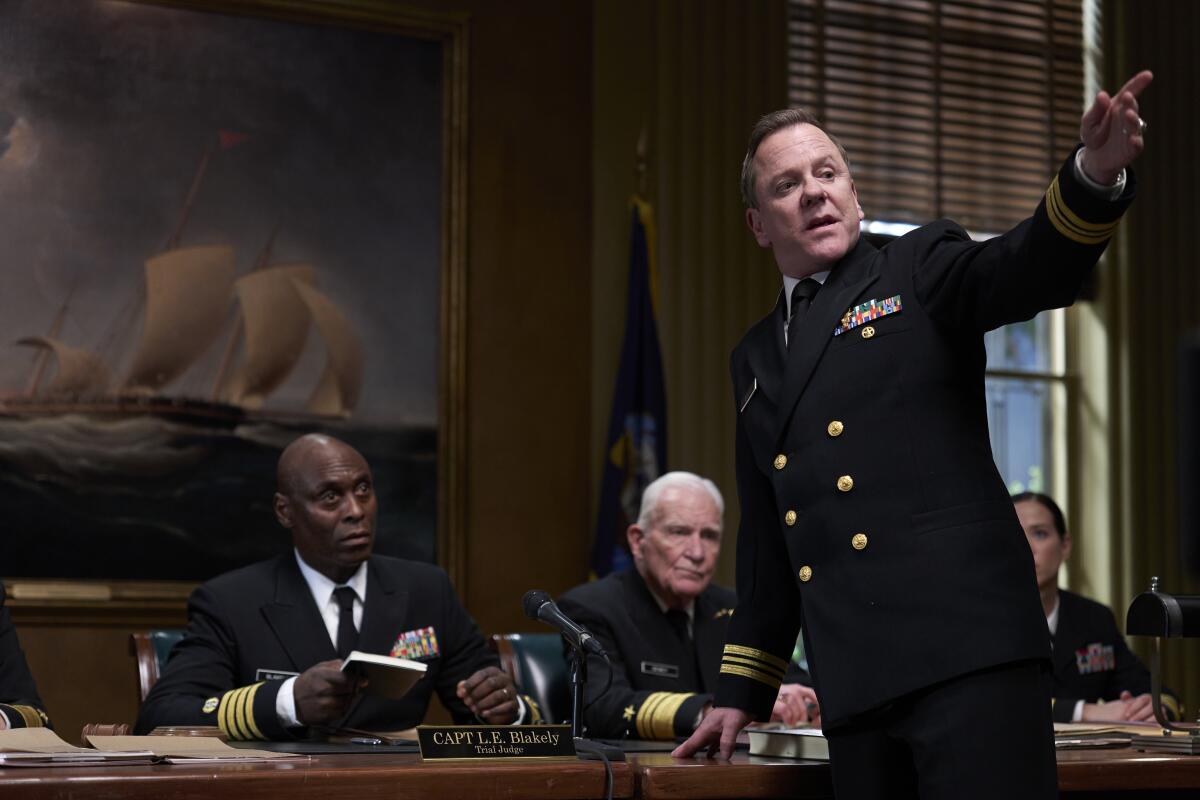The late, great William Friedkin’s final film is staged with all the military precision of its naval court setting. We never leave the courtroom from the moment we’re plunged into it — the first minute — meaning the contentious action around which the film revolves happens only in our imagination, spurred on by the competing accounts of Lieutenant Maryk (Jake Lacy) and Commander Queeg (Kiefer Sutherland). Maryk is accused of mutiny, but, as he tells it, he only seized command from Queeg during a typhoon because he feared that the Commander was experiencing an episode of mental instability that would endanger the lives of everyone onboard.
The lack of flashbacks to this crucial moment places the burden of bearing out the truth on the cast, which includes Jason Clarke as Maryk’s lawyer, Monica Raymund as Queeg’s counsel, and Lance Reddick — the naturally authoritative late actor to whom the film is dedicated — as the judge. The film's lack of visual pizzazz is to its advantage, then, because it allows this excellent cast (and Friedkin’s searing script) to flex under the full, burning gaze of the spotlight. Clarke, in particular, emerges as the standout as the reluctant navy lawyer — a man caught between the impulse to expose one truth and conceal another.
Synopsis
Barney Greenwald, a skeptical lawyer, reluctantly defends an officer of the navy who took control of the Caine from its captain, Lt. Philip Francis Queeg, while caught in a violent sea storm. As the court-martial proceeds, however, Greenwald increasingly questions if it was truly a mutiny or rather the courageous acts of a group of sailors who could not trust their unstable leader.
Storyline
The first officer of the Caine is tried after relieving his commander of the ship’s control during a typhoon — but was it mutiny or, as he claims, an act of life-saving heroism?
TLDR
It’s to everyone’s credit here that the strawberry incident, the water incident, and the cheese incident all make for more thrilling drama than a literal cyclone.
What stands out
Considering Queeg’s unimpeachable history, the case looks clear-cut from the outset, but Greenwald skilfully flips the trial on its head through the power of asking (and avoiding) all the right questions. It’s a joy to watch Clarke deliver such a masterful maneuver, especially because of the way he complicates the part by layering in Greenwald’s obvious discomfort at challenging the institution to which this navy lawyer has devoted his life. Of course, it’s Friedkin’s thrillingly paced writing (adapted from the original play) that sets all this up, and it’s to his credit as a director closely attuned to what makes a gripping and authentic performance that the film is such a showcase of their abilities.







